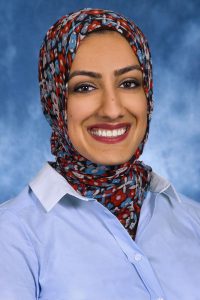

Naureen Haroon, OD, MPH, FAAO, is the Assistant Dean of Academic Administration at University of Detroit Mercy. Before taking that role, she worked at Henry Ford Health System and served as a faculty member at the Chicago College of Optometry. She’s also currently running her own private practice. She’s got her hands full, but ten years later, her love for the job is stronger than ever.
In a recent WO Poll, Dr. Haroon voted that she “loved” what she does for work—disagreeing with 37 percent of respondents. When asked how she keeps her passion for optometry alive, Dr. Haroon said she had to “rediscover” what caught her interest in the first place.
“If you find yourself feeling bored, I’ve been there,” Dr. Haroon says. “I had to break out of that daily routine of seeing patients and doing refractions and discover what I actually liked: teaching.” Now, after gaining experience in corporate optometry, private practice and academia, she’s focused on helping University of Detroit Mercy establish their new school of optometry.
Creating that niche for herself within the “huge” scope of optometry helped Dr. Haroon find something that didn’t burn her out nearly as quickly; but it’s not for everyone, she says.
“I’ve always had a passion for working with others,” Dr. Haroon says. “You have to love academia to be in it, and that includes teaching, seeing patients, research, and scholarly activity. A lot of people don’t love it, and that’s fine.”
And the students she’s seeing in optometry schools now are only gaining more knowledge and experience more quickly than ever before.
“Optometry is so broad. It’s 2023, and it’s not just refracting and dilating anymore,” she says. Med spas, eyelid treatments and light therapy are no longer an uncommon occurrence in an OD office, and social media and public health expand the options even more for ODs today.
What also helps is seeing the passion on students’ faces, Dr. Haroon says. “Students are so excited to move from classroom to clinic,” she says. “What is mundane for us—like seeing cataracts—is such an exciting first experience for them.”
And it keeps her on her toes, too. “With patients, you are identifying and solving problems. With students, you are teaching and leading by example,” Dr. Haroon says. “They watch and question everything you do.”
“Optometry can be whatever you want it to be.”



